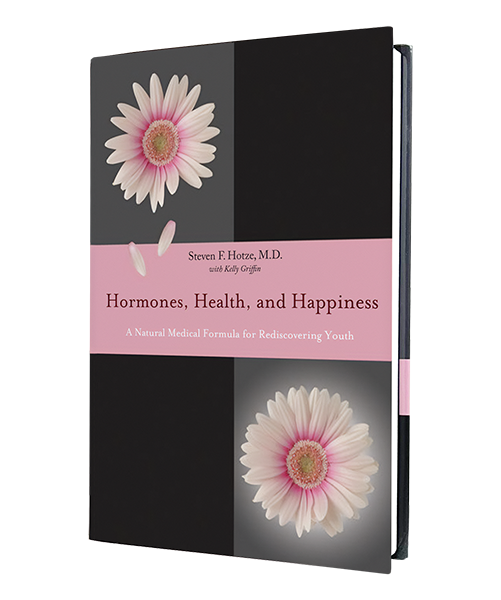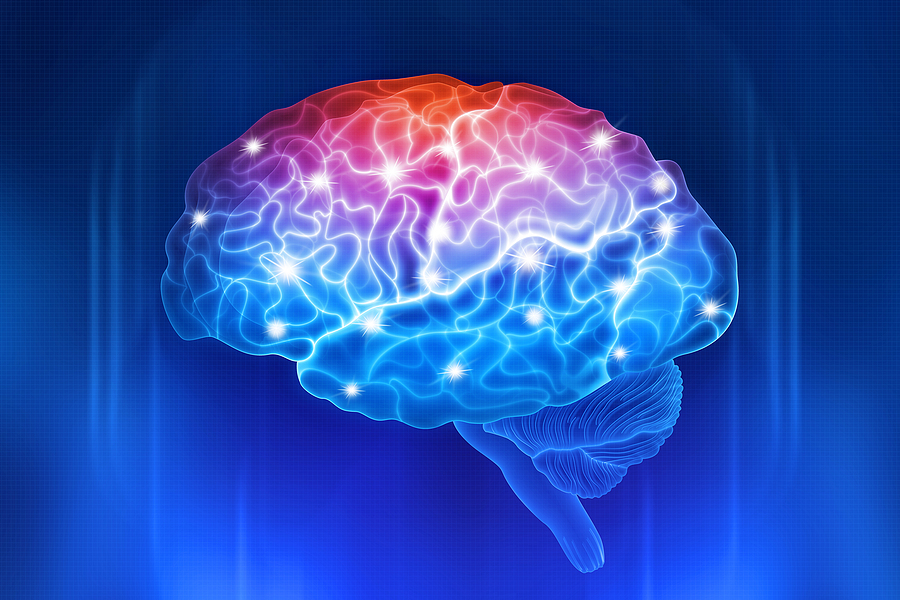In this podcast transcription and video, Dr. Steven Hotze discusses the benefits of bioidentical progesterone for women of all ages. If you have infertility, PMS, sleeplessness, fluid retention, breast tenderness, anxiety, depression, brain fog and more, then you donít...

In this podcast transcription and video, Dr. Steven Hotze discusses the benefits of bioidentical progesterone for women of all ages. If you have infertility, PMS, sleeplessness, fluid retention, breast tenderness, anxiety, depression, brain fog and more, then you donít want to miss this! This could be the answer you have been searching for to help you get your life back. Discover the benefits of bioidentical progesterone for women.
Podcast Highlights:
0:20: Do you have a problem with mood swings, anxiety, depression, panic attacks? How about your romantic moods and inclinations? Do you have difficulty with weight? Are your menstrual cycles regular or have they changed?
1:03: All these are signs of hormonal imbalances and declines.
4:40: But as a woman matures and she has this imbalance in her hormones, that will last maybe a week before the cycle, sheíll have these symptoms, and or maybe two weeks, and thatís the indication that her progesterone levels are declining even in the face of declining estrogen.
5:16: What often happens is a woman, if this happens in teenage years or even in her 20s, woman will often go to the doctor and heíll put her on birth control pills trying to control or regulate the cycleÖ
5:33: Öthose birth control pills stop the natural production of your normal hormones.
6:03: The birth control pillsÖit causes increased blood clotting, it causes increased amount of strokes as women are on these for a number of years. Increased heart attacks, cause migraine headaches, increased blood pressure, it increases the risk of breast cancer, cervical cancer, and uterine cancer, and of course it can cause anxiety and depression.
6:54: By the way, when a woman has the decline in the progesterone and estrogen dominance, that causes the liver to produce high levels of thyroid binding globulin and thyroid binding globulin binds thyroid hormone.
7:33: So when that progesterone declines and you have the binding and the production of the thyroid binding globulin, then a womanís energy level declines and her metabolism declines. And of course, that leads to all these other symptoms of weight gain, brain fog, inability to focus and think clearly, joint and muscle aches and pain.
9:13: By the time a woman gets to the end of her pregnancy in the last month or so, she gets high, high levels, several times normal levels of progesterone, and thatís very important for the final development of that babyís last month before birth is given. And once birth is given, the placenta is removed or delivered right after the babyís delivered. Then thereís a dramatic drop in progesterone, and some women will go into postpartum depression after that and the doctor puts them on antidepressants. Well, the problem is, is that they need progesterone, they donít need antidepressants.
10:47: Öprogesterone can be a tremendous benefit in preventing these anxiety-related incidences and depression and panic attacks.
11:00: Also, because progesterone promotes gestation, women that have problem with infertility and or have miscarriages, physicians will give them progesterone to help promote gestation. So, itís used by OBGYNs, itís used as a treatment for infertility or a treatment for miscarriages.
11:50: Öprogesterone has an anti-cancer effect because itís balancing out the estrogen.
12:17: And when a woman has an imbalance between her estrogen and progesterone, and estrogen dominance and a progesterone deficiency, this adversely affects her ability to properly disseminate thyroid hormones into the cells, and the cells then canít produce enough energy, so this lowers a womanís metabolism.
12:38: Progesterone is also very important for bone health. It stimulates the osteoblasts, those are the cells within the bones that create new bone formation.
14:02: Öwe see insomnia in women that as they march through their menstrual life, they have a problem with sleeping and that is due to the progesterone deficiency. So progesterone is a wonderful sleep hormone. It helps you get to bed and stay rested.
14:30: Öone of the things that causes the chronic headaches or recurrent headaches women have as they march through the menstrual life is fluid retention, and progesterone helps relieve fluid retention.
15:12: Ömoods, anxiety, depression are all caused by a progesterone decline or a deficiency.
Podcast Transcription:
Dr. Steve Hotze: Hello, Iím Dr. Steve Hotze and welcome to todayís program. This program is going to be directed towards women and hormonal changes and how they adversely affect a womanís health and her overall sense of well-being.
Let me just ask you a few questions:
Do you have a problem with mood swings, anxiety, depression, panic attacks? How about your romantic moods and inclinations? Do you have difficulty with weight? Are your menstrual cycles regular or have they changed? Have your periods become heavier as youíve grown older? Do they last longer? Are you having any breakthrough bleeding? How about breast tenderness? Fibrocystic breast disease? Do you have problems with fluid retention? How about migraine headaches, particularly associated with your menstrual cycles? Have you been told by your physician that your problem is fibroids in the uterus? Do you have severe menstrual cramps?All these are signs of hormonal imbalances and declines. So let me explain.
The Normal 28-Day Menstrual Cycle
In a perfect world, a woman would have a 28-day menstrual cycle. Day one would start when she begins to make estrogen hormones, and there are three estrogen hormones made by the ovaries: estriol, estradiol, and estrone. These hormones are made and produced and they proliferate the growth of tissue inside a womanís uterus or womb. On day 14 or 15, a woman would ovulate, she would make an egg that would be given off, would go down the fallopian tubes and into the uterus where the tissue is already beefed up and it would land there waiting to be inseminated or fertilized by male sperm. And so thatís called the luteal phase because theyíre in the ovary where the egg is produced is called the corpus luteum.
When the egg is produced or ovulation occurs, the ovary now starts to produce progesterone as well as estrogen, and the progesterone matures the inner lining of the womb preparing it for a pregnancy. If no pregnancy develops, then on day 28 all the hormone levels drop dramatically, a woman would slough the inner lining of the womb, youíd have your period and youíd start all over again. So thatís the monthly menstrual cycle.
Now, if the hormones are balanced, everything tends to work out good, and when a womanís younger in her teens and 20s, the menstrual cycles may be three to five days, and kind of light. But as she matures, the menstrual cycles can last five to seven days, maybe in her 30s, and then she gets into her forties and the last seven to nine days and they get heavier and they get clotting, and then they get breakthrough bleeding.
This all has to do with the inevitable decline of progesterone.
Progesterone is the hormone thatís made by the corpus luteum when thereís ovulation. As a woman matures and moves towards menopause, which occurs on an average at age 50, the ovaries donít make eggs every month. They may miss, they may have anovulatory cycles. Thatís a cycle in which no egg is made, so all she has is the effect of the estrogen, which is proliferating the inner lining of the womb. Sheís not making progesterone to balance it out.
Progesterone Helps Relieve PMS Symptoms
This is called estrogen dominance or progesterone deficiency. And this is what causes the significant premenstrual symptoms that occur. The heavier bleeding, the severe cramping, the fluid retention, the weight gain, the breast tenderness, even fibrocystic breast disease. Mood swings, depression, anxiety, panic attacks and migraine headaches or headaches of other sorts. But migraines are a very common premenstrual symptom. And those premenstrual symptoms may initially last one or two days just before the cycle.
But as a woman matures and she has this imbalance in her hormones that will last maybe a week before the cycle, sheíll have these symptoms, and or maybe two weeks, and thatís the indication that her progesterone levels are declining even in the face of declining estrogen. Estrogen doesnít decline like progesterone, especially when she has an anovulatory or a cycle in which she makes no eggs or she doesnít ovulate, so sheís not going to make progesterone.
Birth Control Pills Are Not the Answer
What often happens is a woman, if this happens in teenage years or even in her 20s, woman will often go to the doctor and heíll put her on birth control pills trying to control or regulate the cycle, which it will it do. You can control them, but those birth control pills stop the natural production of your normal hormones. Estrogen hormones and progesterone, and youíre taking counterfeit estrogen hormones and a counterfeit progesterone, hydroxyprogesterone. And this is stopping your own hormone production.
Negative Side Effects of Birth Control Pills
And while it can balance out your periods, it comes with a lot of side effects. The birth control pillsÖit causes increased blood clotting, it causes increased amount of strokes as women are on these for a number of years. Increased heart attacks, cause migraine headaches, increased blood pressure, it increases the risk of breast cancer, cervical cancer, and uterine cancer, and of course it can cause anxiety and depression. Women on birth control pills have a much higher rate of taking antidepressant and anti-anxiety drugs, and it also leads to osteoporosis. Why is that? Because youíre not getting your natural progesterone. Some of the positive effects of, weíre going to talk about the positive effects of progesterone, which can be used to treat all these symptoms of PMS and hormonal decline.
Progesterone Deficiency Adversely Affects Thyroid Function
By the way, when a woman has the decline in the progesterone and estrogen dominance, that causes the liver to produce high levels of thyroid binding globulin and thyroid binding globulin binds thyroid hormone. The thyroid hormone, which comes from the thyroid gland in the neck is what enters the blood and then has to enter the cells, and in the cells that enables the cells to produce and use energy. Itís a spark plug of the mitochondria, the power plant in the cell that produces electrical energy that powers all the biochemical reactions that we have.
So when that progesterone declines and you have the binding and the production of the thyroid binding globulin, then a womanís energy level declines and her metabolism declines. And of course, that leads to all these other symptoms of weight gain, brain fog, inability to focus and think clearly. Joint and muscle aches and pain. Sluggish bowel functions adversely affect the immune system. So, she may have allergies, may rear their ugly heads, she may have recurrent chronic infections, and she just feels sick and tired. This is very common to women as they march through their menstrual life. All women invariably will have these symptoms to one degree or another.
More Important Benefits of Progesterone
Now, let me explain more important benefits of progesterone. The word progesterone means promoting gestation. Gestation is pregnancy. So the hormone of the last half of the month in a menstrual cycle is progesterone. It promotes gestation. It promotes the maturing of the inner lining of the womb.
Fertility and Pregnancy
When a new baby is conceived in the womb, the corpus luteum continues to make progesterone, it doesnít stop. So thereís no period, thereís no sloughing. If her ovaries are working well and she makes enough progesterone, it promotes that gestation and then the babyís placenta kicks in and for the last six months, the babyís placenta produces the progesterone. By the time a woman gets to the end of her pregnancy in the last month or so, she gets high, high levels, several times normal levels of progesterone, and thatís very important for the final development of that babyís last month before birth is given. And once birth is given, the placenta is removed or delivered right after the babyís delivered. Then thereís a dramatic drop in progesterone, and some women will go into postpartum depression after that and the doctor puts them on antidepressants. Well, the problem is, is that they need progesterone, they donít need antidepressants.
Progesterone Helps with Mood and Depression
Progesterone helps relieve depression, and thatís theÖyouíve been through a pregnancy for nine months and the ovaries have been shut off and the babyís placenta has been producing the progesterone. Now the ovaries have got to kick back on, and if theyíre sluggish and depending upon your age, they may kick back on slowly, they may be sluggish and youíre not making enough progesterone. So that causes a significant mood swing and it can cause postpartum depression.
Remember, the hormones, both male and female hormones affect our neurotransmitters and the way we think and affect our moods. Thatís why as women march through their menstrual life, they tend to have problems with more anxiety or panic attacks or depression, particularly associated with the premenstrual period in their cycle, and that is hormonally related. So progesterone can be a tremendous benefit in preventing these anxiety related incidences and depression and panic attacks.
Progesterone is Used to Prevent Infertility and Miscarriages
Also, because progesterone promotes gestation, women that have problem with infertility and or have miscarriages, physicians will give them progesterone to help promote gestation. So, itís used by OBGYNs, itís used as a treatment for infertility or a treatment for miscarriages.
Progesterone Helps Prevent Cancer
Also, progesterone helps in preventing cancer. There was a John Hopkins study in 1981 that showed that women that were infertile and had low levels of progesterone had five times the risk of developing breast cancer and a 10 time risk of developing cancers of all types. So, progesterone has an anti-cancer effect because itís balancing out the estrogen. Estrogenís important, but too much of a good thing or not properly balanced, any one of the hormones can cause symptoms and can cause health problems.
Progesterone Deficiency Affects Thyroid Function
As I mentioned earlier, the thyroid hormones are affected by the hormonal balance that a woman has. And when a woman has an imbalance between her estrogen and progesterone, and estrogen dominance and a progesterone deficiency, this adversely affects her ability to properly disseminate thyroid hormones into the cells, and the cells then canít produce enough energy, so this lowers a womanís metabolism.
Progesterone is Important for Bone Health
Progesterone is also very important for bone health. It stimulates the osteoblasts, those are the cells within the bones that create new bone formation. So, we find that as women mature and their progesterone levels go down, they tend to get osteopenia, which is mild bone loss, and then osteoporotic, which is significant bone loss. Now, women that are on birth control pills because they donít make progesterone will have osteoporosis at a much younger age than a woman that doesnít take birth control pills.
So itís important for bone health to be on progesterone and we recommend progesterone even after woman goes through menopause. We also recommend progesterone after that because it has a positive effect on bone health and we give both estrogen and progesterone simultaneously just as a woman would have before she had gone through the change of life. We give that those hormones to help prevent the symptoms of menopause.
Progesterone is Important for Good Sleep
Sleepís another problem that is very common, a sleep impairment or even sleep apnea. But we see insomnia in women that as they march through their menstrual life, they have a problem with sleeping and that is due to the progesterone deficiency. So progesterone is a wonderful sleep hormone. It helps you get to bed and stay rested. It also helps get rid of fluid retention.
Progesterone is Important for Brain Healing
Itís important for brain health, as well. It decreases the swelling in the brain.
Progesterone Helps with Migraines and Headaches
So, one of the things that causes the chronic headaches or recurrent headaches women have as they march through the menstrual life is fluid retention and progesterone helps relieve fluid retention. And I mentioned, and thatís thought to cause migraine headaches. So migraine headaches often are associated with the premenstrual period in a womanís menstrual cycle, and progesterone can remarkably, remarkably resolve that problem. If the migraine headaches are associated with menstrual cycle, it can be a Godsend to you. And as I mentioned earlier, moods, anxiety, depression are all caused by a progesterone decline or deficiency.
Bioidentical Progesterone to the Rescue
So what do you do if you begin to have any of these symptoms of progesterone deficiency? If you have problems with infertility, if you have problems with PMS, if you have problems with low metabolism, osteoporosis, if you have problem with sleep or fluid retention, recurrent and chronic migraine headaches, you have problems with brain fog, if you have a problem with recurrent and chronic allergies, all these can benefit from supplemental, natural bioidentical progesterone, and progesterone is the natural hormone your ovaries make, and if you are going to replenish, you want to put the same identical hormone back in your body that your body used to make inadequate amounts.
And so you would take progesterone, if youíre a menstruating female and having the symptoms, day 15 through 28, and depending upon your age, your size and your symptoms we will determine what dose you should start on. It varies. We often start on a small dose and incrementally increase it until you say, or the woman says, ďBoy, I feel great. Iím not having my symptoms anymore.Ē So thatís how we treat progesterone.
Now Iíd like you to become knowledgeable about this, Iím offering you a copy of my book, Hormones, Health, and Happiness. This talks about our 8-Point Treatment Regimen here, our program here at the Hotze Health & Wellness Center, which is treatment of airborne and food allergies, treatment of yeast from recurrent and chronic antibiotics, and then natural thyroid hormone replacement when indicated, sex hormone replacement both in males and females when indicated, treatment of adrenal fatigue, vitamin and mineral supplementation for detox and a good eating and exercise program to get you on a path of health and wellness so as you mature, you have energy and you have vitality, and you have enthusiasm for life.
So if youíll call the number on the screen, 281-698-8698, talk to one of our New Guest Consultants and tell them you saw the podcast and youíd like a copy of the book. Iíll send you a copy of this book free of charge, and Iíll send it without any fee for shipping, weíll send it to you.
I want you to have it. I want you to become educated because I know this: ďIf mama ainít happy, ainít nobody happy!Ē and your homeís going to be a whole lot better, if youíre happy, full of energy, full of vitality, full of enthusiasm, youíre going to be happier. Your spouse is going to be happier and your children are going to be happier, your friends are going to be happier, youíre going to be a wonderful person with whom to associate, and thatís what I want for you.
You can go to hotzehwc.com, itís listed on the screen for you, and you can go to our Symptom Checker and you can look and see if your symptoms are related to hormonal decline and imbalance.
Thatís the story on progesterone. Itís a wonderful hormone, and ladies, youíll thank God every day if youíre having these symptoms, you get on progesterone, itíll make a significant difference. By the way, if youíve had a hysterectomy, that usually is done because a woman has fibroids or they have dysfunctional uterine bleeding, and women really respond well when we get those women that have had hysterectomies, we get them on progesterone, they feel like they just feel brand new.
And it can help you restore and rejuvenate yourself so you feel young and vibrant and full of energy again. And thatís what Iíd like to see for you. I believe that you need a physician that can guide you on this path of health and wellness naturally, and thatís what we do. We partner with you here at Hotze Health & Wellness Center, and if we can serve you, please donít hesitate to give us a call. Iím Dr. Hotze. Thank you for joining us today.
Click here†to subscribe to†Dr. Hotzeís†Wellness Revolution Podcast†today!
The post Benefits of Bioidentical Progesterone for Women appeared first on Hotze Health & Wellness Center | Houston TX Hormone Replacement.












